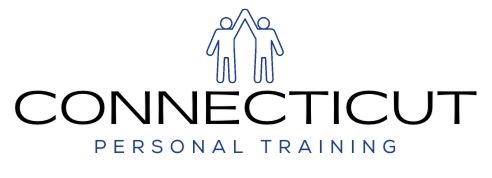Our personal trainer in Wethersfield CT told us that everyone needs to take recovery days, which are essentially days off from one’s workout, to allow the muscles to repair themselves.
She told us, “Once clients have started their exercise routine and get used to a level of training, these clients and even athletes sometimes don’t want to take a rest day, because they are trying to reach a goal and don’t want to hinder their progress.” Our Wethersfield CT personal trainer goes on to say, “In order to get the best out of your training program, however, recovery is essential both physically and psychologically. If it gets out of hand–meaning too much training without proper rest—this can lead to over-training syndrome.”
Our personal training in Wethersfield CT informed us that physically, recovery days are needed in order for muscles to repair, rebuild and strengthen due to the stresses placed on them during exercise. Proper recovery time will allow the body to replace energy stores and repair muscle tissue that is being broken down while training. This prepares the body for the next set of demands placed on it, during exercise.
“Without taking that rest time,” asserts our personal trainer in Wethersfield CT, “energy stores won’t have time to recover, fluids won’t be replaced to correct amounts, and your workout will suffer from it, possibly even leading to injury.”
Mentally, we need to take rest or recovery days as well for a number of reasons.
No one likes doing something that they don’t enjoy, and if you are pushing too hard everyday, it’s going to take a toll on you mentally and have a negative effect on your motivation.
Your body is capable of doing a lot of things,” said our personal trainer in Wethersfield CT, “but your mind is what makes them happen, so if you aren’t in the right state due to exhaustion or lack of motivation than your routine is going to suffer.”
Many people do not realize that recovery begins the moment your workout is finished. What you do has an effect on how your body functions the next few days.
Making sure that you take the time to cool down and stretch appropriately will help to alleviate soreness from an intense bout of exercise.
It is also imperative that you replenish fluids and energy lost during your exercise with the correct foods. Drinking water during and after your workout regimen will keep you hydrated and replace the electrolytes lost during your session, and making sure to get a meal with a balance of protein and carbohydrates within a half hour of leaving the gym will build muscle and get your energy stores back up to where they should be.
Our personal trainer in Wethersfield CT is very serious when she says that within the scope of a training program, recovery days are part of a more long-term process of your body being able to make gains. These gains also include the type and duration of workouts, which is often why cross training is used with higher level athletes.
So we asked our Wethersfield CT personal trainer: How much rest is needed or recommended?
She told us that the amount of rest necessary can vary, so it’s important to listen to your body to know what is best for you as an individual. Delayed onset muscle soreness can take up to 48 hours to present itself, depending on if it is a new workout, what type of workout it is, and your exercise background.
Just because you need to take rest and recovery days does not mean that you can just be a couch potato on those days. If you’ve had a particularly exhausting workout then by all means, kick your feet up. While taking rest days, however, you still need to hydrate and have proper meals to fuel your upcoming workouts. If you are feeling well, you can take an active recovery day, and go for a walk, bike, or swim, or you can foam roll sore muscles in order to boost blood flow and facilitate repair and grow of muscles.



